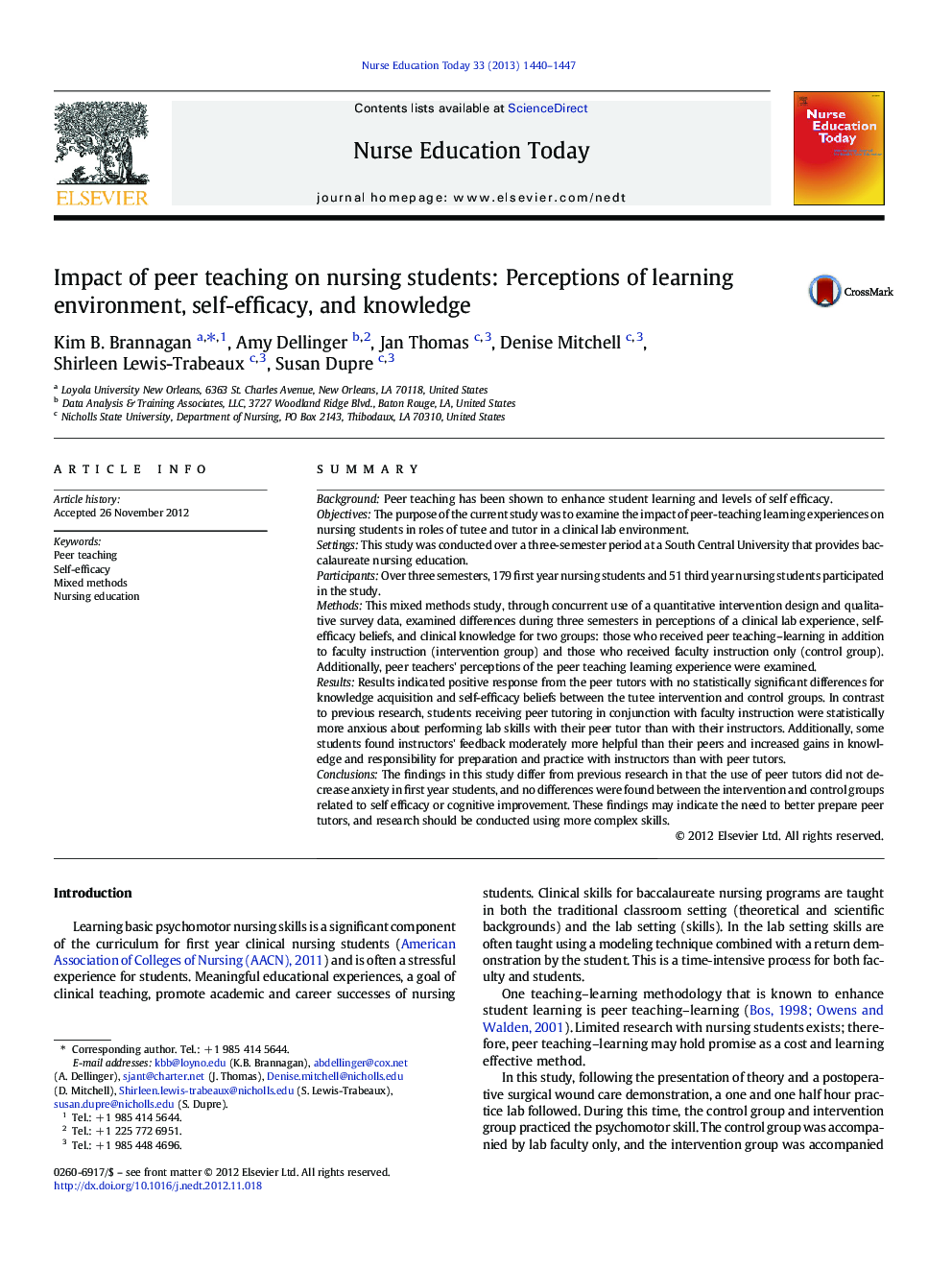| Article ID | Journal | Published Year | Pages | File Type |
|---|---|---|---|---|
| 368297 | Nurse Education Today | 2013 | 8 Pages |
SummaryBackgroundPeer teaching has been shown to enhance student learning and levels of self efficacy.ObjectivesThe purpose of the current study was to examine the impact of peer-teaching learning experiences on nursing students in roles of tutee and tutor in a clinical lab environment.SettingsThis study was conducted over a three-semester period at a South Central University that provides baccalaureate nursing education.ParticipantsOver three semesters, 179 first year nursing students and 51 third year nursing students participated in the study.MethodsThis mixed methods study, through concurrent use of a quantitative intervention design and qualitative survey data, examined differences during three semesters in perceptions of a clinical lab experience, self-efficacy beliefs, and clinical knowledge for two groups: those who received peer teaching–learning in addition to faculty instruction (intervention group) and those who received faculty instruction only (control group). Additionally, peer teachers' perceptions of the peer teaching learning experience were examined.ResultsResults indicated positive response from the peer tutors with no statistically significant differences for knowledge acquisition and self-efficacy beliefs between the tutee intervention and control groups. In contrast to previous research, students receiving peer tutoring in conjunction with faculty instruction were statistically more anxious about performing lab skills with their peer tutor than with their instructors. Additionally, some students found instructors' feedback moderately more helpful than their peers and increased gains in knowledge and responsibility for preparation and practice with instructors than with peer tutors.ConclusionsThe findings in this study differ from previous research in that the use of peer tutors did not decrease anxiety in first year students, and no differences were found between the intervention and control groups related to self efficacy or cognitive improvement. These findings may indicate the need to better prepare peer tutors, and research should be conducted using more complex skills.
